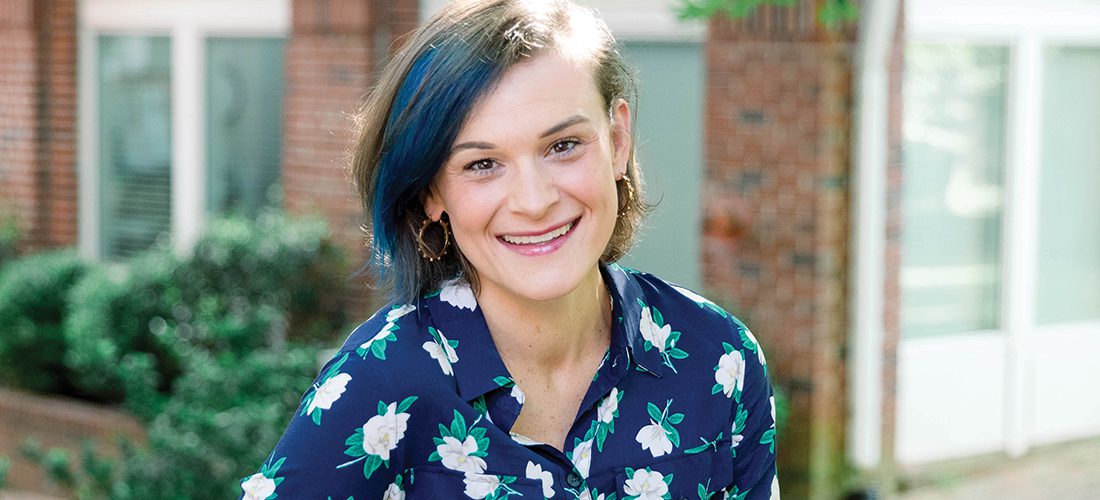Accepting loss
June 29, 2023

Releasing expectations around grief can help us adjust.
by Juliet Lam Kuehnle
Grief and loss show up in almost every person’s story in some way, and they can appear on many different levels. When meeting with clients who are grieving, I normalize for them that grief is very personal and that it is not something we “get over” or “cure,” but something we learn to carry differently with time. I also help name for some clients that what they are experiencing is grief when they often don’t realize that’s what they are feeling. Many people tend to just associate grief and loss with death, but we can also experience those feelings with transitions, shifts in identity, and realigning expectations when something doesn’t turn out the way we think it will.
Everyone’s grief journey is unique. There is no formula or timeline. There is also no right or wrong way to grieve — or to feel. This can be frustrating to people who just want to feel better or want to know how long it will take until they wake up without such heaviness in their hearts. In therapy, I help clients understand how symptoms of grief can manifest physically, emotionally and spiritually. Many people are familiar with Elisabeth Kubler-Ross’ five stages of grief (denial, anger, bargaining, depression and acceptance) and expect to move through them all linearly, but that simply doesn’t always happen. Sometimes people will bounce around within those five stages, and sometimes people won’t ever experience a particular stage. The unpredictable nature of grief makes it one of the most complicated emotions. This makes sense, since grief occurs because something or someone has mattered to us. It is the price we pay for having love, hope and connection.
While there are many ways to understand grief through various cultural contexts, in American culture, people often get uncomfortable around people who are grieving. They end up saying platitudes that many grievers feel are invalidating. How many of these have you heard or said after someone experienced a loss?
I guess it was their time.
At least they’re not suffering.
You have to be strong.
Now you can live your own life.
At least they made it to X years old.
Everything happens for a reason.
You’re never given more than you can handle.
You’ll find someone else.
They’re in a better place now.
You can just replace it.
That was so long ago; why are you still worried about it?
As well-intentioned as people are, clichés like these can feel dismissive of the pain someone is experiencing. We’d be better off simply saying something like, “I don’t know what to say, but you can share with me whatever you’re feeling” or “Do you want to talk about it?” or offering specific help.
As wearisome as holding grief is for adults, imagine how confusing this journey can be for kids. Whether it is the very real loss of a beloved stuffed animal, a changing friendship, a realization that circumstances are going to be different than once hoped, or the death of a family member, no matter how old a kid is or what stage of grief they are vacillating between, kids yearn for adults’ steadiness, security, consistency and empathy. Validate and answer children and provide them with an environment of sincere openness where they know you will be honest. You’re less likely to be met with resistance or to undermine your kid if you simply just listen. To engage them in dialogue, you might simply reflect back on what you’ve heard or ask open-ended questions that allow them to process their experience. With validation and support, children will feel they are able to regain some semblance of balance and control. Be honest and sincere about your own grief process, with yourself and with your kids.
As hard as it may seem, you and your children can move forward from loss. Carve out intentional time to take a breather from the grief. People often feel guilty for continuing to live — having fun or even realizing moments have passed during which they didn’t think about it. This is normal. Having fun or having moments of relief does not dishonor the person who died or the experience that changed. In fact, these cycles and waves are actually helpful to the grief process. We can channel emotions and grief into living intentionally: not taking things for granted, telling our loved ones we love them, and seizing new opportunities and adventures. This can empower us and be welcome amid the heaviness. If we can release our expectations of what grief “should” look like, we can start to integrate the loss and the changes into our lives, with acceptance, as we adjust. SP
Juliet Kuehnle is the founder/owner and a therapist at Sun Counseling and Wellness. Kuehnle’s first book entitled Who You Callin’ Crazy?!: The Journey From Stigma To Therapy debuted in May. Follow along on Instagram @YepIGoToTherapy.



